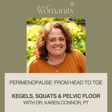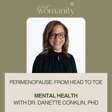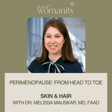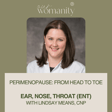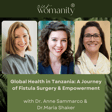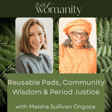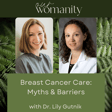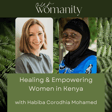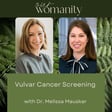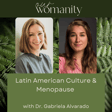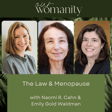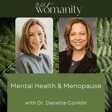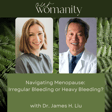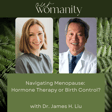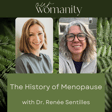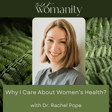
22. Breast Cancer Awareness with Dr. Cynthia Owusu
October is Breast Cancer Awareness Month!
In this insightful episode, I am joined by Dr. Cynthia Owusu, a leading expert in geriatric oncology. Together, we discuss proactive steps women can take to reduce cancer risk, the emotional toll of a breast cancer diagnosis, and the importance of early detection.
Dr. Owusu shares valuable tips for lowering the chances of developing breast cancer:
- Maintain a Healthy Body Weight: Learn how maintaining a normal weight can significantly impact your health and reduce cancer risk.
- Increase Physical Activity: Dr. Owusu explains how regular exercise is crucial not only for boosting mood but also for lowering cancer risk. Aim for at least 30 minutes of moderate activity most days.
- Limit Alcohol Consumption: Find out how reducing or eliminating alcohol can make a big difference in your overall health.
Dr. Owusu also dives into the emotional challenges women face post-diagnosis, including anxiety, depression, and stress, particularly around the uncertainty of treatment options like chemotherapy. However, she reassures listeners that many women diagnosed with breast cancer do not require chemotherapy.
The episode emphasizes that breast cancer is curable, especially when detected early. Dr. Owusu also sheds light on the common use of surgery and other treatments for breast cancer patients.
Dr. Cynthia Owusu is a renowned expert in geriatric oncology. She is currently the principal investigator on a $2.8M research grant from the National Institute on Minority Health and Disparities. This important study explores the impact of physical activity on functional status, body composition, and biomarkers of breast cancer prognosis among African American and socially disadvantaged breast cancer survivors. Dr. Owusu is also actively working to improve participation of all women in clinical trials to help enhance breast cancer outcomes in this vulnerable population.
Follow us on social media:
- Instagram: @drrpope
- TikTok: @vulvadoctor
- Twitter: @drrpope
Want more from Our Womanity?
If you enjoyed this episode of Our Womanity, please subscribe, rate, and leave a review. Your feedback helps us continue to bring you engaging and empowering content.
